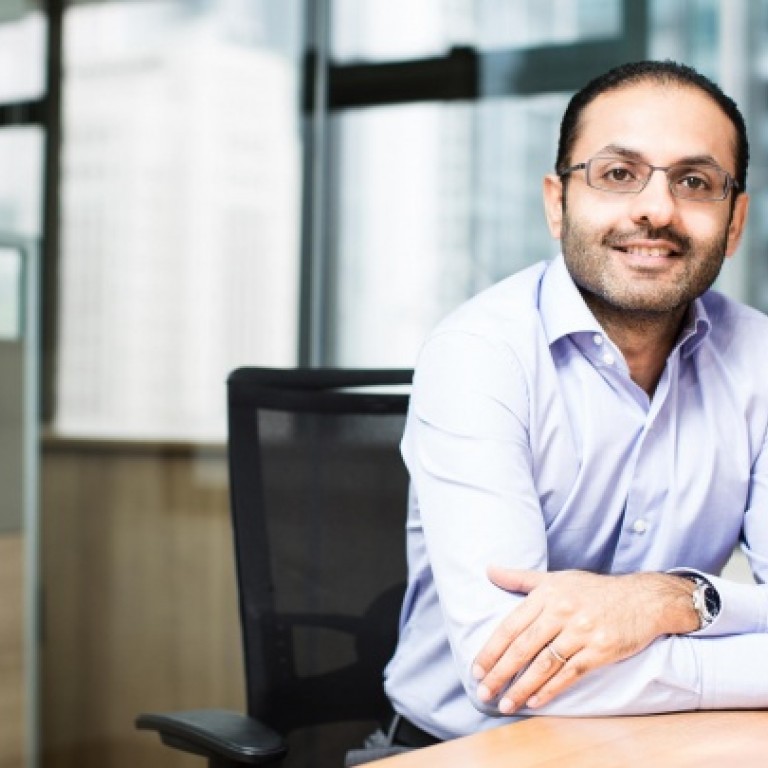
HK's first family health office promises top doctors and nurses
Best practitioners now within reach
The super rich often have their personal fortunes managed by single family offices, which offer exclusivity and privacy over commercial banks or investment companies. Taking a leaf from their books, a local businessman has launched Hong Kong's first dedicated family health office.
Qineticare offers 24/7 services, with a personal care team managing all aspects of its members' health care, including priority access to "the finest medical and wellness professionals in Hong Kong".
"Our aim is to transform the focus from reactive sickness management to proactive health care," says the company's founder and CEO, Feisal Alibhai.
Its target audience is the time-poor, stressed professional who tends to overlook health - no doubt a common crowd in Hong Kong.
Feisal, 44, who was born in the Democratic Republic of Congo and who has lived all over the world, says most people he meets are not prepared for illness. "It's quite shocking," he says.
Feisal moved from New York to Hong Kong in 1992 to set up a buying office for his garment and textile company. Back then, with frequent work trips to Eastern Europe and Africa, he surrounded himself with the best doctors, just in case he picked up any infectious or tropical diseases.
So, when diagnosed with stage three lung cancer in 2004, he was taken by surprise - but he was prepared. "I was able to handle the situation with a minimal amount of stress because I had access to the top doctors, a comprehensive worldwide medical plan and a family that supported me throughout," says Feisal.
Doctors found 10 tumours - the largest, the size of a Rubik's Cube, in his chest; another tennis-ball-sized one in his neck; and the rest, between 1cm and 2cm each, in his lungs.
He was treated in Hong Kong. Twenty rounds of chemotherapy and three operations later, he has fully recovered.
He realised his calling was assisting others with their health care. He started helping family and friends access Hong Kong's best doctors, whom he knew after repeated hospital visits. Between 2007 and 2010, Feisal lived in Dubai and did the same there.
Qineticare was formed to help people beyond his circle of influence. Membership costs US$2,000 for adults and US$1,000 for children per year.
New members go through an "onboarding" process that includes collecting the medical history of the individual and his or her family, and a wellness assessment and coaching for lifestyle changes, says general manager Zeynep Incekara.
A nurse is assigned to each member. "If you wake up in the morning with severe neck pain, for example, you call your dedicated nurse and she will give you the names of three orthopaedic surgeons," explains Feisal. "Once you pick one, she will arrange an appointment as soon as possible."
Qineticare has a panel of about 150 doctors covering 25 key categories of medicine. They are the "crème de la crème of Hong Kong", he says.
He assembled the panel after conducting a peer survey among a group of doctors. "I had them pick five or six specialists they would [seek treatment from] themselves for each category."
Feisal says 95 per cent of his panel match those on the International SOS list. Qineticare also has over 100 wellness practitioners of Eastern and Western philosophies.
The company has partnerships with International SOS, for emergency aid worldwide, and Patients Know Best, an online medical records company based in Britain.
It also works with insurance brokers. Members will have 50 per cent of their medical insurance commissions returned to them.
Feisal says the membership fees are Qineticare's only earnings. "There are no commissions, kickbacks, service fees - nothing - from insurance brokers, clinics, doctors, wellness providers and so on," he says.
Why, then, would this panel of doctors give his members priority access?
"It's a matter of building relationships," says Feisal, who claims to have the numbers of Hong Kong's top doctors in his wallet. He adds that priority access is based on "a level of common sense".
"Priority doesn't mean immediate, it's based on [the severity of] the situation," he says.

